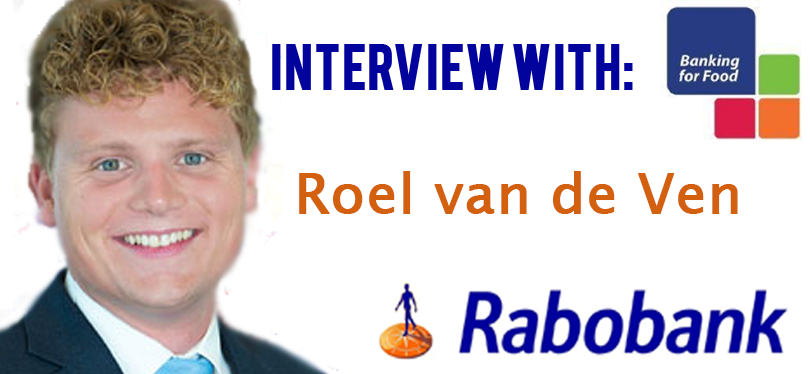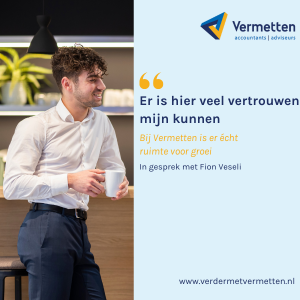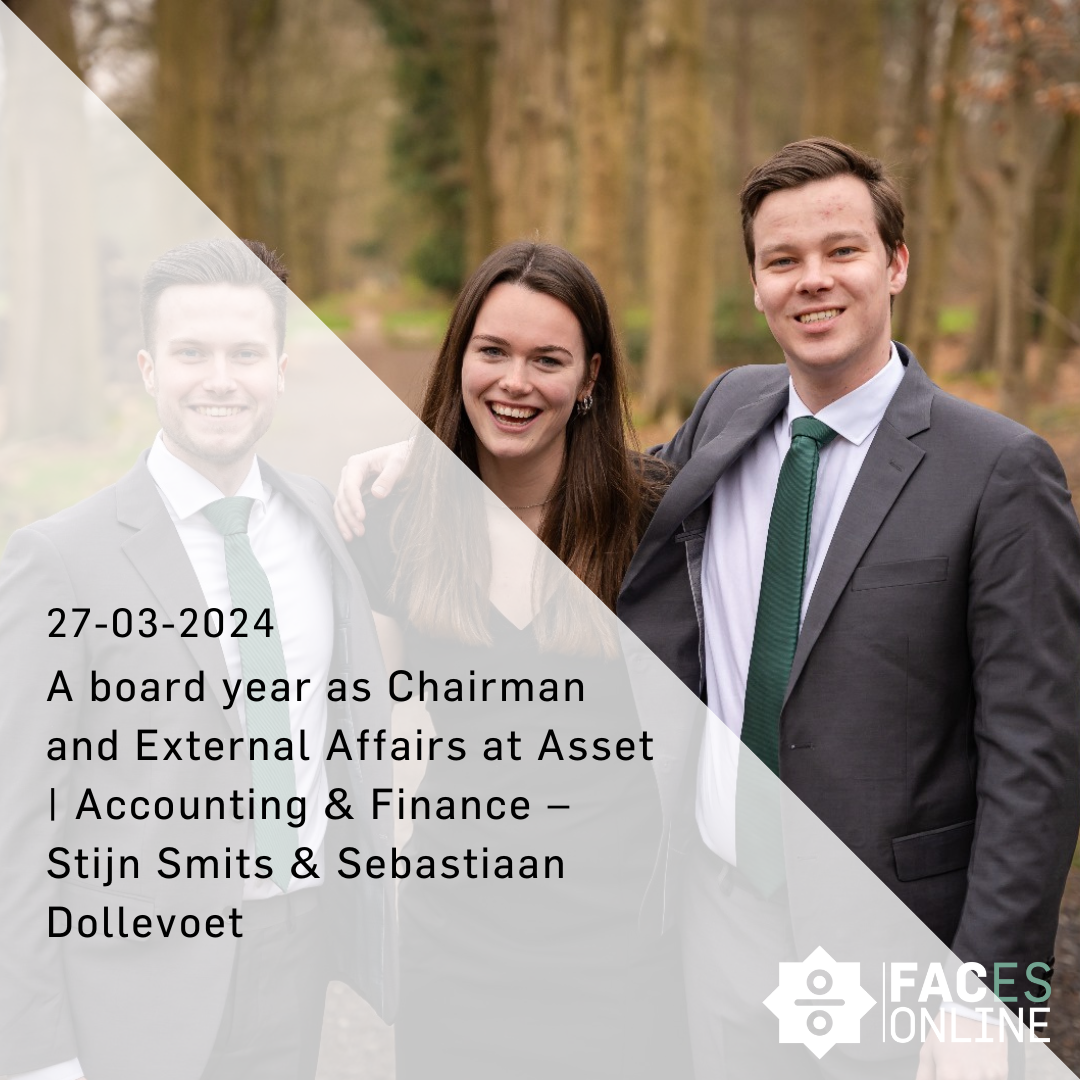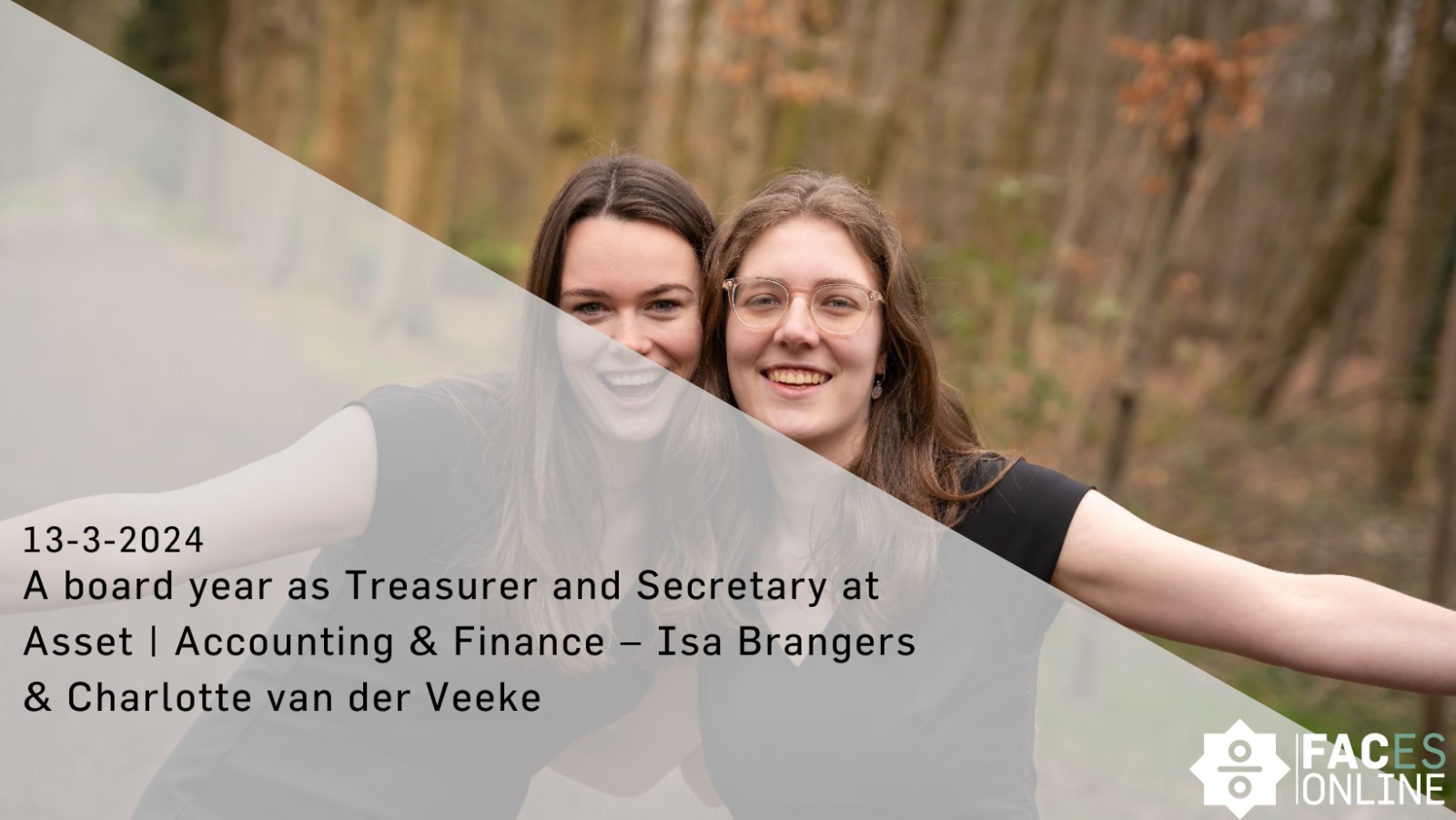Fion Veseli works as a Junior Data Analyst at Vermetten and has made an impressive mark on the Advisory team in a short time. Read below how he likes

The world population is rapidly expanding. Recent estimates suggest a world population of over 9 billion people by the year 2050. To support these people, global food production has to grow accordingly. This is an enormously challenging problem. We, Rob Donkers and Luc van den Hurk, spoke with Roel van de Ven, a former board member of Asset | Accounting & Finance. Roel currently works at the Rabobank within the Food & Agri sector, where he is focusing on these problems and more!
Roel’s experiences: from active member at Asset | Accounting & Finance to specialist in the Food & Agri sector at the Rabobank.
Roel started off his study Business Economics at Tilburg University, unsure of what this study would bring him. As active member at Asset | Accouting & Finance, he co-founded a finance-symposium called iFinance. After his return from studying in France as an Erasmus student, he was asked immediately to do a board year as the treasurer of Asset | Accounting & Finance. He took this opportunity and learnt a lot about himself in his time as treasurer. We asked him how his board year at Asset | Accounting & Finance still benefits him today, which is self-reflection. As a board member you are responsible for many different affairs, ranging from getting coffee to making decisions concerning the strategy of the association. As you are working on so many different things, you learn a lot about yourself. You start to see your strong and weak points by self-reflection and feedback from others. Once you realise what your strong and weak points are, you shouldn’t just focus on improving your weak sides, but focus on your strong sides instead. This side of you is what differentiates you from other students. During his board year, but also the master’s degree, he realised that he was especially interested in the Food & Agri sector. This is why he specialized in this sector and applied at the Rabobank for a job in the Food & Agri sector.
The Rabobank, as an ambitious food and agriculturally focused bank
Ambitiously as it sounds, the Rabobank believes that there could be enough food production to support a population of 9 billion people in 2050. To realize this goal, the Rabobank is actively contributing substantially to solve this issue.
The Rabobank is deeply rooted in the Dutch Agri market and is probably the most experienced bank in the sector. In every village, there is or used to be a Rabobank office next to the church. In fact, over 80% of agricultural loans come from the Rabobank in the Netherlands but it doesn’t stop there.
With its global network of agricultural clients, the Rabobank has collected a vast knowledge about the entire supply chains, from seed to end-product. Using this knowledge, the Rabobank is able to understand their clients and their needs better and anticipate.
With high-tech machinery, capable farmers and good conditions, the Netherlands is able to lead the world in farming.
Increasing the world’s food production
There are many challenges in tackling the food supply problems due to population growth. Simply increasing the amount of available agricultural land is not an option, as not all surface is suitable for agriculture. The earth’s surface is limited, so more focus is put on quality instead of quantity of the land. If the quality and effectivity of the available land increases, it is possible to produce better crops.
Roel van de Ven experienced this development first hand, while researching small-scale farming in South-Africa. In the past, dealing with drought was hard for the local farmers and setting up irrigation was too costly. Now, due to scaling up and improved technology, even small-scale South-African farmers have access to irrigation. This impulse has a big influence on the output of South-African smallholders, making their produce available to the export market.
Similar developments have also helped the Dutch farmers increase their production. Think of the introduction of artificial fertilizers and constantly evolving farming machinery. In the future, it is most likely that Big Data will be used in farming. Roel has been working on a project where they chip cattle. This chip collects data on the body temperature, stomach contractions and ph-level of the stomach. All of this data is useful. Normally, a cow has a body heat of 38 degrees Celsius. If this suddenly drops to 36 degrees, there is something going on. The farmer could then get a notification about this problem and GPS tracker will give the location of the cow. With this technique, the farmer is realizing in an early stage that something is wrong, which gives him possibilities to provide treatment in this early stage. According to Roel, many resources are saved and many problems are prevented by using this form of Precision Agriculture.
The Netherlands, global leader and inspiration
Nowhere in the world is the agricultural supply chain as efficient as in the Netherlands. With high-tech machinery, capable farmers and good conditions, the Netherlands is able to lead the world in farming. Other countries often take the Netherlands as their role model in this regard. In Roel’s time researching the dairy supply chain in China, he found that Chinese were particulary interested in the Dutch dairy supply chains since it is very efficient with high quality standards. The Dutch farmers are eager to take up new ways to increase efficiency or production and the Rabobank plays their part in this as well, lending money to farms applying new techniques and allowing farmers to invest in better ways to work.
Advice from Roel
Make sure you study long enough to get to know yourself and develop yourself, this can be a kickstart to your career. Do an internship, join a committee and do a board year. Make use of the opportunities your university time has to offer you. Also, going abroad is greatly recommended. “I have studied in seven different countries, from France to South Africa and from Berlin to Beijing, and this turns out to be a great asset for the future” says Roel. The most important thing is that you do these things because you like them and for your personal development and chances, and not purely to give your CV a boost.
“Looking back, I was lucky that a board year came across my path, because I wasn’t really considering it. I was in doubt whether I should take that chance, but I went for it 100% and that made me the person I am today. Also my Exchange programme, my master abroad and my internships contributed greatly to this. If you are in doubt, take a chance!”
After you complete your study everybody has the same skills as you. Make sure you know what you like and be the best in that field. Surround yourself with people that challenge you and develop yourself to be the best in your field. Most importantly; keep doing what you like. This will bring you way further than doing the same thing as everybody else does.






















